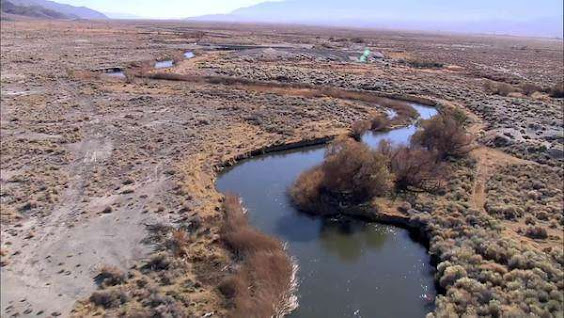First Presbyterian Church
April 27, 2025, Easter 2C
In the Breaking of the Bread
One of the characteristic features of Luke’s gospel is that Jesus and the disciples spend an awful lot of time at the dinner table or otherwise gathered around food.
More broadly one could argue – and at least one author has – that one of the underlying themes of the gospel is hospitality – both the ways in which Jesus sought to minister to those around them through the practice of welcome, the practice of enabling others to feel “at home” in his presence, and the ways in which such hospitality was (or was not) extended towards Jesus – whether Jesus was made welcome or not.
But the specific hospitality context of a meal does come up awfully frequently in Luke’s gospel. There are at least ten different accounts in Luke in which the action taking place is either a meal, or is something that takes place in the context of a meal; six of those stories are unique to Luke, not found in any of the other gospels. In addition, another seven accounts in Luke feature meals or eating or food in the context of Jesus’s teaching to the crowds or to the disciples, or sometimes in the context of conflict with the religious authorities, such as the incident in which Jesus’s disciples were criticized for plucking and eating heads of grain on the Sabbath.
So perhaps it shouldn’t be a surprise that the first appearance of the risen Christ that Luke records in his gospel features a meal as its turning point.
We start on the road, though. Two of Jesus’s followers – not among the twelve, but clearly followers who had been with Jesus for some time – were, for reasons we don’t know, walking from Jerusalem to a town called Emmaus.
This is on the third day. We find out later that this is after the women have come back from the empty tomb, as recorded in the first part of this chapter, but at this point no one has actually seen Jesus. We have accounts from the women of the tomb being empty, but no sign of the risen Christ.
We hear that these two men, one of whom will be called Cleopas a few verses later, are talking about “all these things that had happened.” We tend to presume that “all these things” are those events that happened in Jesus’s last week in Jerusalem, particularly from the Last Supper forward through the crucifixion. It might also have included that curious report from the women and Peter, who each went to Jesus’s tomb and saw it empty.
Whatever their subjects of discussion, they were so caught up in them that they didn’t notice the man who had caught up with them from behind. (Remember, we know it’s Jesus, but they don’t.) When he asks what they’re talking about, the two followers act as if it should have been impossible for anyone in Jerusalem to have missed the events surrounding Jesus and his crucifixion. They recite those events to him (again, not recognizing that it is Jesus), including the odd reports about the empty tomb. In doing so they reveal, in the words “we had hoped that he was the one to redeem Israel,” that after all this time they might not have truly understood just what it was for Jesus to be the Messiah – not the military conqueror, but indeed a suffering servant and a true spiritual redeemer of Israel and of all.
It is this that Jesus picks up on and expounds upon as he begins to teach them, one more time, how all the things that he had said and done had been “necessary.” Going all the way back to Moses and working through all the law and the prophets he proclaims to them once again how all of his life and his teaching and, yes, his suffering and death, had been “necessary.”
What happens next, as the two travelers come to their destination, demonstrates that for all that the two disciples might have forgotten or misunderstood, they had remembered one thing, perhaps the most important thing. They had remembered how Jesus taught and showed them how to be his followers.
They remembered the table.
Not just the table at which Jesus had only days before broken bread and poured a cup and talked about his body and blood, and kept using words like “do this in remembrance of me.” Surely they remembered that one, but they remembered all those other meals and all those other tables – the one with five thousand fed by just a few loaves and fish; the one at Zacchaeus’s house, where a skinflint tax collector suddenly started making alternate plans for the distribution of his estate; the banquet at the home of another tax collector, Levi, who had dropped his whole business at a word to follow Jesus; the evening at the home of Mary and Martha, with Martha fussing over every detail while Mary presumed to sit at Jesus’s feet with the other disciples.
They remembered, and they wouldn’t let the stranger go without breaking bread with them.
The rest of the story is fairly familiar; the stranger, the guest, takes over as host and breaks the bread – I know that breaking of the bread – that’s Jesus! – only for him to disappear from his sight; the rushed return to Jerusalem, where the disciples tell them about Jesus appearing to Simon (we tend to assume they’re speaking of Peter, but we don't know for sure); and then, in the remainder of the chapter beyond this reading, Jesus himself appearing before them and teaching them, one last time.
In the breaking of the bread they recognized Jesus, yes; but it was in Cleopas and the other disciple reaching out to the stranger, inviting them into their own meal and their own room and sharing their resources with him, that Jesus was welcomed and able to break the bread.
One is reminded of the stories from Genesis, how Abraham and Sarah unwittingly entertained angels and even Yahweh himself in welcoming the stranger. We are also reminded of Jesus’s own words in Matthew 25, that what we do (or don’t do) for or to “the least of these,” we do to Jesus himself.
Our call, at its most elemental and most basic (and one it seems that a lot of Christians today reject), is to make welcome for the stranger, for the guest, for the disaster victim, for the refugee, for the migrant, for the sojourners among us, whoever they may be. This, even more than our prayers and offerings and worship, is how we welcome Christ among us.
Thanks be to God. Amen.
Hymns (from Glory to God: The Presbyterian Hymnal); #248, "Christ Is Risen!" Shout Hosanna!; #500, Be Known to Us in Breaking Bread; #254, That Easter Day with Joy Was Bright




